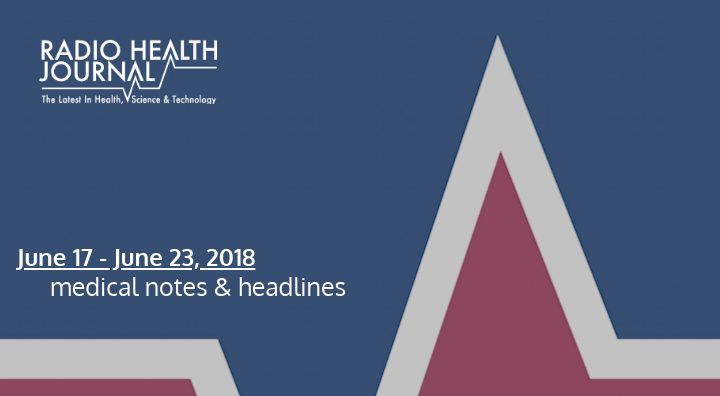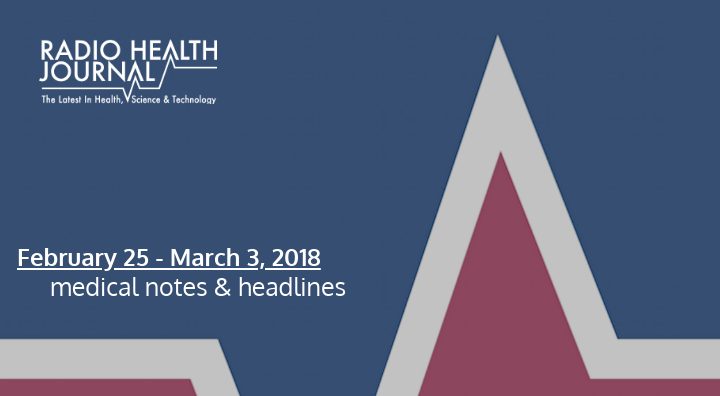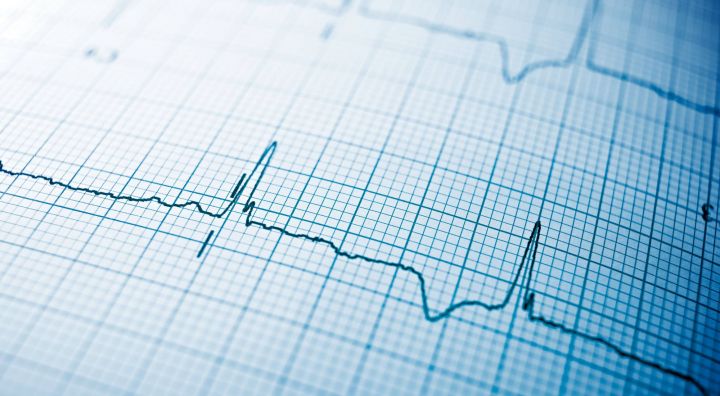Medical Notes: Week of June 24, 2018
A look at new proposed hypertension guidelines, youth baseball injuries, and drinking coffee to be have more productive meetings.


A look at new proposed hypertension guidelines, youth baseball injuries, and drinking coffee to be have more productive meetings.

Using an eczema drug to treat asthma, scientists are developing a biomedical tattoo to catch cancer early, exercise is likely the key to not having a heart attack, and why chewing gum and walking is good exercise.

A new link between specific genes and depression, the potential to use a certain protein to treat sundown syndrome in Alzheimer's patients, and new research on an increased risk of death after the death of a spouse.

Hope for a new, faster anti-flu drug, a study shows that food poisoning is often the culprit behind the 24-hour stomach flu, and research revealing short people are less likely to develop blood clots.

Increased risk of heart disease death for people with restless leg syndrome, an experimental test for whether an upper respiratory infection is caused by a virus or bacteria, and genes that cause bad breath.

Surveys show young women are often unaware of their risk for a heart attack and are much less likely to go to the emergency room when one occurs.

A look at the top medical headlines for the week of October 29, 2017.

A healthy diet is one of the best weapons against heart disease, yet new studies show cardiologists (as well as other physicians) are woefully deficient in nutritional knowledge

Firefighter heart attack deaths, a link between sleep and dementia, and avoiding eating junk food by...waiting.

Dogs that can sniff out cancer, depressions and heart disease, lack of sleep connection to more arguments, and how parents feel about their kids playing sports.

Experts discuss heart attacks, known as SCAD, that are caused by arteries splitting open rather than blockages.

Children and adolescents seldom have “heart attacks,” but they sometimes have heart arrhythmias which can look like the same thing, and be just as deadly.
Subscribe to get the latest from Radio Health Journal directly in your inbox.

